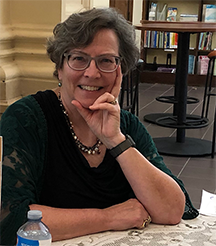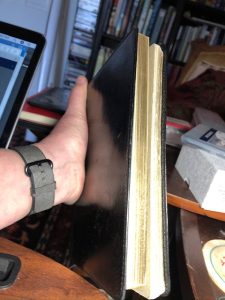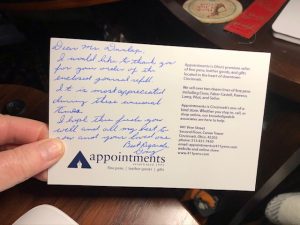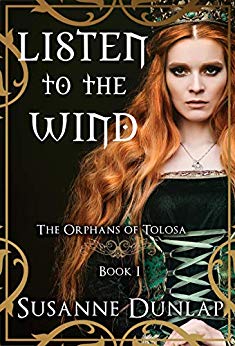Pandemic Writing Lessons
 There’s no other way to say it: these weeks since the COVID-19 pandemic broke out have been extraordinary. Unprecedented. I’m not even sure the English language has an adequate adjective to describe this time. Possibly German does, with its magnificent ability to combine disparate words into one powerhouse concept.
There’s no other way to say it: these weeks since the COVID-19 pandemic broke out have been extraordinary. Unprecedented. I’m not even sure the English language has an adequate adjective to describe this time. Possibly German does, with its magnificent ability to combine disparate words into one powerhouse concept.
But I’m left with my own arsenal of words to do the job. And that arsenal has not only made it possible for me to reach the end of April in a state of sanity, but it has helped me to grow—as a writer and a human being.
At the beginning, when no one knew what to do or how serious all this would be (I’m in the US—enough said), I joined the local mask makers trying to do what I could to supply local organizations with at least some protection from spreading and acquiring the disease. I spent hours doing it, only managing to contribute about 45 of them in the end, when I realized that I was neglecting my true role in this world—and when the supply of masks both from sewers and manufacturers became more plentiful.
That was lesson #1: Just because I can do something doesn’t mean I must.
Outwardly, my daily life didn’t change a great deal with the onset of social distancing and stay-at-home orders. I was already working from home, very busy with my new book-coaching business and also editing for a hybrid publisher in Michigan, preparing and teaching writing workshops for a local writing studio (online for the duration), doing the marketing for the three books I published in 2019 and planning for the next one. The only thing that changed was that I could no longer take my iPad out to a café or the lovely local library for a change of environment and a jolt of inspiration. That took some adjusting.
I was changing despite outward appearances. And so was my writing practice. And I don’t think that would have happened without the external stimulus of a world gone topsy-turvy. I created an additional workspace in my bedroom out of a small area I hadn’t been using for anything. I moved the comfortable work chair I never used and made it fit in that space. Voila! A change of scene.
Lesson #2: Making space for your writing can happen anywhere.
But that wasn’t the only change for me. I suddenly felt like writing in a journal again, something I haven’t done for several years. In fact, I would have said that I don’t journal, I don’t keep a notebook. My brain is the repository for the gazillion ideas I have, and somehow writing them down before I’m ready to turn them into story felt like losing control over them. Also, my handwriting is so atrocious I was afraid I’d never be able to read anything I wrote anyway.
But still, something made me want to hold a pen in my hand and write on the smooth paper of a nice-quality blank book. It felt visceral, necessary. So I went searching for the blank Moleskine journal that I knew I’d bought but couldn’t remember where I’d put it. In the process, I found a stack of journals I’d written dating back to the 90s, commemorating trips, difficult times, life changes. I still wouldn’t have called myself a journal keeper, but clearly, the need resurfaced at important moments. And this of all eras is certainly important.
 Also in my search I found a beautiful black leather Sully journal cover that contained two refills full of writing. I loved those notebooks. That made me start a search for new refills, which I had no idea how to find. I had bought that cover in the 80s, when I’d just moved to New York from London, and for all I knew the company that made it—Sully—no longer existed.
Also in my search I found a beautiful black leather Sully journal cover that contained two refills full of writing. I loved those notebooks. That made me start a search for new refills, which I had no idea how to find. I had bought that cover in the 80s, when I’d just moved to New York from London, and for all I knew the company that made it—Sully—no longer existed.
I searched online, and found a small stationer in Cincinnati that carried the refills. You have to understand, these are not only signature-bound, beautiful, thick, smooth cream paper. They have gilt edges.
When I received my refill, it came with a postcard and a handwritten note from the owner of the store, thanking me for helping them weather this difficult time by placing an online order. Of course, I immediately went and ordered another refill and a lovely rollerball pen from them. And I have been writing in this journal every day since, first thing in the morning after I’ve dressed and taken my dog Betty out. All of which points to:
Lesson #3: Letting go of preconceived ideas about how you write can open your mind—and have unexpected benefits.
I suppose three lessons is enough for one blog post, but I wanted to share one more. I’m a person who always has several projects on the go at once. I had already planned to publish the third Theresa Schurman YA historical mystery on September 30, 2020. I’ve continued to do the work necessary to make that happen (it’s been beta read, blurbed, and is out with the proofreader right now). But I’m avoiding the inevitable hard work of figuring out the promotions I’ll be able or want to do in these uncertain times.
 And because of these uncertain times, I’ve done a bit of prioritizing with my work. I’ve decided that, more important than finishing that historical romance I’m writing (which is great fun), I needed to reach closure on a book I’ve been working on for over three years. I needed to tackle a major rewrite, where I cut it down to one POV character instead of three. Doing that immediately solves some of the problems I knew existed in the manuscript. It’s a huge challenge, and it’s making me dig deeper than I ever have to bring this one historical character to life in an important way.
And because of these uncertain times, I’ve done a bit of prioritizing with my work. I’ve decided that, more important than finishing that historical romance I’m writing (which is great fun), I needed to reach closure on a book I’ve been working on for over three years. I needed to tackle a major rewrite, where I cut it down to one POV character instead of three. Doing that immediately solves some of the problems I knew existed in the manuscript. It’s a huge challenge, and it’s making me dig deeper than I ever have to bring this one historical character to life in an important way.
I don’t know if anything will ever come of that manuscript, but when it’s finished, it will be the best thing I’ve ever written—so far. Which leads me to my final pandemic writing lesson:
Lesson #4: Writing from your heart and soul is the most important thing there is—now and in whatever the future holds.
—
Susanne Dunlap is the author of nine historical novels for adults and teens. Her young adult novel The Musician’s Daughter was a Junior Library Guild selection and a Bank Street Children’s Book of the Year, and it was nominated for the Missouri Gateway Readers Prize and the Utah Book Award. Her latest adult novels, Listen to the Wind and The Spirit of Fire are the first volumes of a medieval trilogy for adults,
The Orphans of Tolosa. Listen to the Wind is a semi-finalist for the Chaucer Awards for Pre-1750 Historical Fiction and a Distinguished Favorite in the NYC Big Book Awards. Susanne also published The Mozart Conspiracy, the second in the YA historical mystery series that began with The Musician’s Daughter, in 2019. The third in the series, The Paris Affair, will be published in September, 2020. Susanne has a PhD in music history from Yale University.
Find out more about her on her website https://www.susanne.susanne-dunlap.com/
Follow her on Twitter https://twitter.com/susanne_dunlap
Follow her on Facebook https://www.facebook.com/SusanneDunlapAuthor/
LISTEN TO THE WIND
 Sent away for their own protection when they were very young, Azemar and Azalaïs become separated when they flee from the band of outlaws who served as their supposed protectors. Armed only with fleeting memories, their names, and the wits and intelligence that have helped them survive brutal conditions, they struggle to find each other again and discover the mysterious past that links them across distance and time.
Sent away for their own protection when they were very young, Azemar and Azalaïs become separated when they flee from the band of outlaws who served as their supposed protectors. Armed only with fleeting memories, their names, and the wits and intelligence that have helped them survive brutal conditions, they struggle to find each other again and discover the mysterious past that links them across distance and time.
Who are they? And do they hold the secret of the legendary Cathar treasure? All they know is that knights and priests spell danger, and they must survive at all costs if they are to fulfill their destiny.
Category: How To and Tips
























